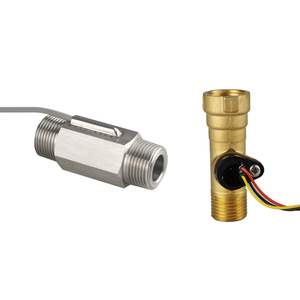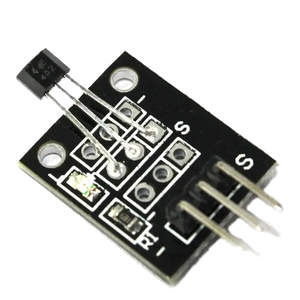Introduction to Hall Effect Sensor Projects
The Hall effect sensor is an essential component in modern electronics, utilized in a variety of applications ranging from automotive systems to consumer gadgets. A Hall effect sensor detects the presence and strength of a magnetic field and translates that information into an electrical signal. With the rising interest in DIY electronics and educational projects, Hall effect sensor projects have gained prominence as an engaging way to demonstrate the principles of physics, electronics, and engineering. This comprehensive guide explores the diverse types, functions, and applications of Hall effect sensor projects, equipping enthusiasts and beginners with valuable insights.
Types of Hall Effect Sensor Projects
Hall effect sensor projects can be categorized into several types, each serving unique purposes and functionalities. Some common types include:
- Magnetic Field Detectors: Projects that utilize Hall effect sensors to detect and measure magnetic fields.
- Speed Measurement Devices: Applications that measure the rotational speed of motors or wheels.
- Position Sensing Systems: Projects that determine the position of objects, such as doors or robotic arms.
- Current Sensing Circuits: Used in power management systems to monitor electrical currents.
- Proximity Sensors: Systems designed to detect the presence of nearby objects without physical contact.
Function and Feature of Hall Effect Sensor Projects
Understanding the function and features of Hall effect sensor projects is vital for effective implementation and innovation. Key attributes include:
- Non-invasive Measurements: Hall effect sensors offer non-contact measurement capabilities, allowing for greater precision and safety.
- High Sensitivity: These sensors are capable of detecting even weak magnetic fields, making them versatile tools in many applications.
- Fast Response Time: Hall effect sensors provide real-time feedback, making them ideal for dynamic environments.
- Durability: High resilience against environmental factors such as temperature and humidity ensures longevity and reliability.
- Compact Size: Their small footprint allows integration into compact devices without compromising performance.
Applications of Hall Effect Sensor Projects
The applications of Hall effect sensor projects extend to numerous fields, showcasing their versatility and effectiveness. Key applications include:
- Automotive Systems: Used for detecting position and movement in various components like throttle position, wheel speed, and more.
- Consumer Electronics: Implemented in smartphones for detecting cover proximity, in laptops to determine lid status, and in other handheld devices.
- Industrial Automation: Essential in implementing safety measures, motor control, and process automation.
- Robotics: Employed in robots to track movement, speed, and object detection, enhancing functionality and autonomy.
- Medical Equipment: Utilized in various devices to monitor and diagnose health conditions, ensuring high standards of patient care.
Advantages of Hall Effect Sensor Projects
The advantages offered by Hall effect sensor projects make them a preferred choice for hobbyists and professionals alike. Some notable benefits include:
- Cost-Effectiveness: Generally, Hall effect sensors are affordable, making them accessible for educational and DIY projects.
- Low Power Consumption: These sensors operate efficiently, requiring minimal power for their operation, which is crucial for battery-operated devices.
- Easy Integration: The compatibility of Hall effect sensors with microcontrollers and other electronic components simplifies the project-building process.
- Comprehensive Learning Opportunity: Engaging in Hall effect sensor projects fosters the understanding of complex concepts in electronics and engineering.
- Innovation Potential: The versatility of these sensors enables endless possibilities for creativity and innovation in project design.




































































































































































































